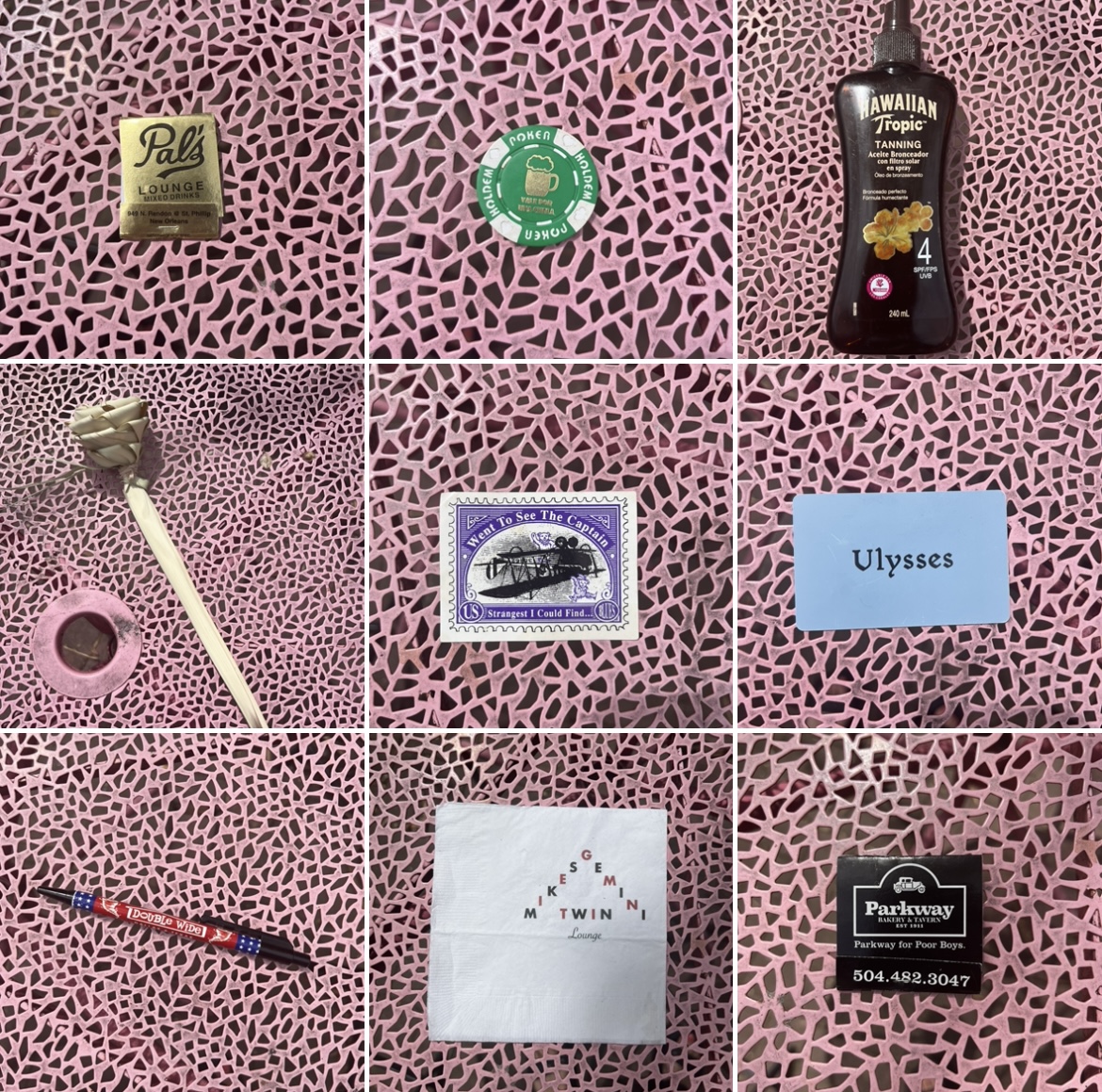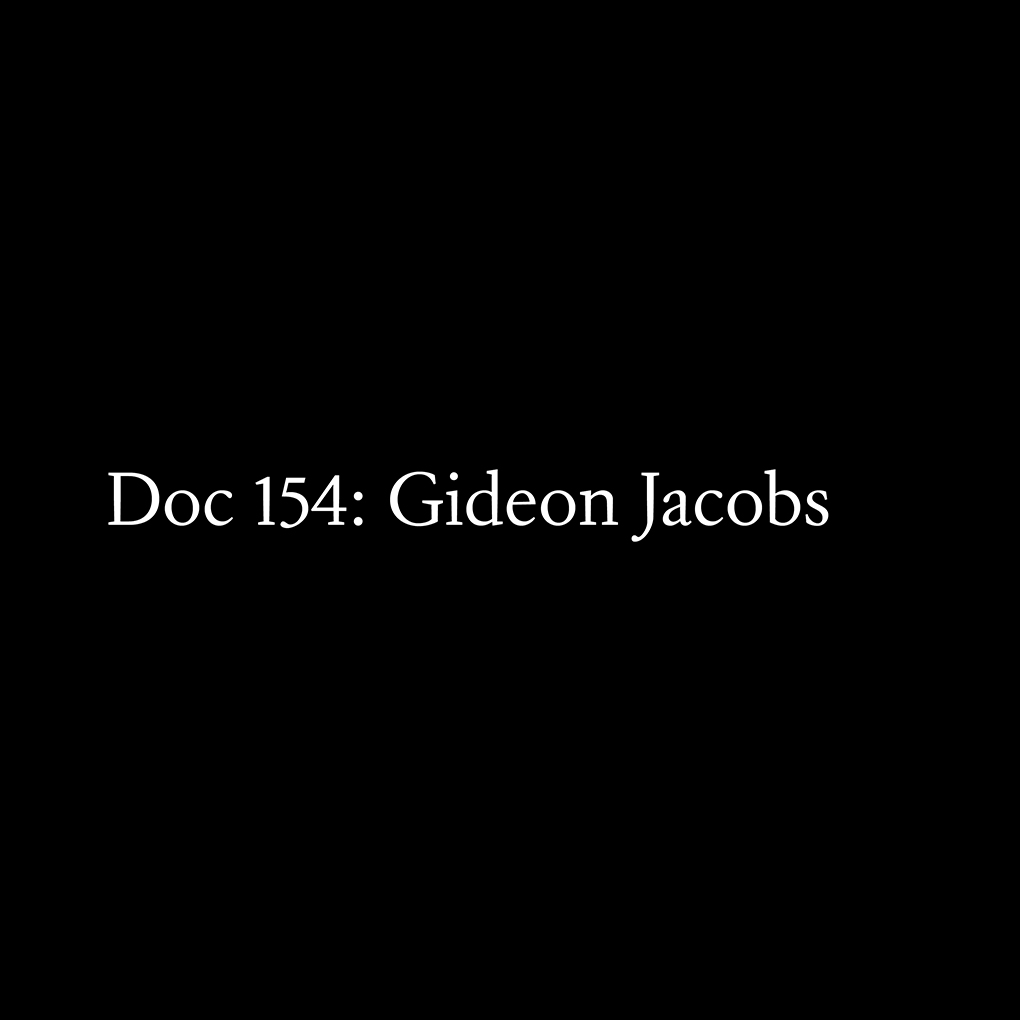
These items are the detritus of some very good times that contained the kernels of some very bad ideas. I pursue pleasure until it winds me or wounds me, and on my back in the aftermath I try to translate the marks on my body like morse code, make my panicked panting a poem or a melody, read a bruise as a painting. I’ve misread so much in my life, slid into the strange delight of self-deception and the more straightforward fun of fabulism, manipulating my life into witty anecdotes and punch lines, narrated with the kind of irony you can only summon from a drone’s eye view. When I fall out of the sky and onto the sidewalk, the scars tell a type of truth that words won’t ever approach, but isn’t that the point of a body? Greening, my skin will tell you what I can’t say yet, and my words will make that story survivable, and your fingertips will turn it all into something I not only can but want to swallow. It tastes like you touched it, sweat and salt, garlic and citrus rind. Listen, I thought it was a good idea at the time. There is courage in naïveté, an interior sunlight leaking out of the mouth moving too fast, asking you too much.
Knowing someone is spectacularly sybaritic from where I’m sitting, permeability is the point, I want you to know where to insert the knife, or it won’t hit when you don’t. I want a hit of your vape, and I want it to turn me into the version of me you made up. I want a drag of your cigarette, and I want you to drag me down with you. My friend went to an old movie and said the heroine announced, flirtatiously, that she was many girls. A psychoanalyst insists that the flirt puts the fear of god in people who believe in reality or truth, or worse, the possibility of a cogent identity, a ‘self that is not elusive.’ Flirts have ‘a different way of believing in the Real Thing,’ apparently. We know it slips through your fingers like sand or falls down like dominoes, so we savor the roughness of the grain and the grace in collapse. That was capitalized on purpose because I think it is the story you and I are writing together when the words come too fast and we forget what time it is.
An acquaintance on X posits a mass accusation: none of us are beliefmaxxxing. Angled mirrors, narrative distance, peripheral vision, the paranoia of multiple perspectives is also the pleasure of contingency. I am only the person you are speaking to right now and I don’t know who your words will make me tomorrow, what I’ll pour into the dent you make in me, who will help me cover up the scar. My best friend tapped translucent powder onto the scars I forged into myself when I didn’t know how to hide one of the girls I was; she helped me because she believed I was also another girl she knew, one who needed her, one who heard her. We put on our outfits and held hands and stepped out into the cold. Just because the chips are down doesn’t mean you can’t play them or pocket one and take it home as a souvenir.
The story you told me changed my life, but only because I mis-remembered the climax, or exaggerated the denouement. Plot points deliquesce, a girl turns on a spigot and her selves circle the drain. Someone plugs it and steps in, the water is warm. If you need to light a candle, I have matches.
Emmeline Clein is the author of Dead Weight: Essays on Hunger and Harm (Knopf) and Toxic (Choo Choo Press). She is the editor-at-large for books at Cultured. Her writing has appeared in The Paris Review, The Nation, The Yale Review, The Washington Post, Lux, and elsewhere.

